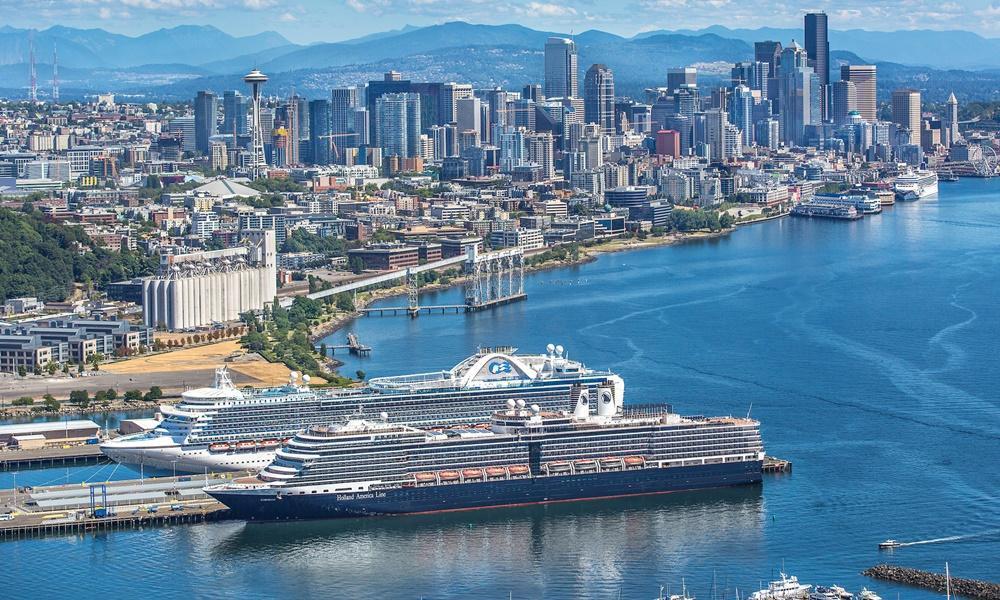Port Seattle (Washington USA), City and Borough of Juneau (Alaska), Vancouver Fraser Port Authority (BC Canada), leading global cruise shipping companies, as well as the Blue Sky Maritime Coalition, Global Maritime Forum, and Washington Maritime Blue announced a new commitment to exploring the feasibility of the first cruise-led ‘green corridor’ in the world.
Cruise line and industry partners feature Carnival Corporation (and its brands CCL-Carnival, Cunard, HAL-Holland America, Princess, Seabourn), NCLH-Norwegian (and its brands NCL-Norwegian, Oceania, RSSC-Regent Seven Seas), RCG-Royal Caribbean Group (and its brands RCI-Royal Caribbean, Celebrity, Silversea) and CLIA (Cruise Lines International Association) - the industry's largest trade association.
The First Mover Commitment was revealed during the International Association of Ports and Harbors World Ports Conference held in Vancouver (BC Canada).
A green corridor is a maritime route where zero greenhouse gas emission solutions are supported. Green corridors create the economic, technological, and regulatory feasibility needed for zero greenhouse gas emission vessels to succeed.
The collaborative efforts are aimed at exploring the feasibility of the green corridor that could accelerate the deployment of zero greenhouse gas emission cruise ships and operations between British Columbia, Washington, and Alaska.
~300 ships leave Seattle for Alaska in a 6-month cruise season. Alaska hosts a total of 600+ cruise sailings annually.
First Mover partners is due to leverage and support each other’s decarbonization work and bring those technological advancements and resources to the focused and coordinated effort.
Partners agree to:
"Work together to explore the feasibility of a green corridor in the Pacific Northwest of North America, including, but not limited to, further defining the scope and application of the green corridor concept;
Enhance and support the emission-reduction efforts already underway and use the green corridor as a testbed for low and zero greenhouse gas technologies and ships, as feasible; and
Work collaboratively to define the governance structures, terms, and frameworks needed to guide this regional effort."
The initiative welcomes participation from other regional ports and all sectors of the maritime industry. Domestic cargo lines, commercial fishing, ferries, tug, barges, and other cruise ports have shared goals around climate action which might require an expanded agreement to reflect new participants/corridors in the region.

Last year, 24 countries, including Canada and the United States, signed the Clydebank Declaration, committing to supporting the establishment of at least 6 green corridors by 2025. It is up to first movers to collaborate and implement the pathway to get to zero.